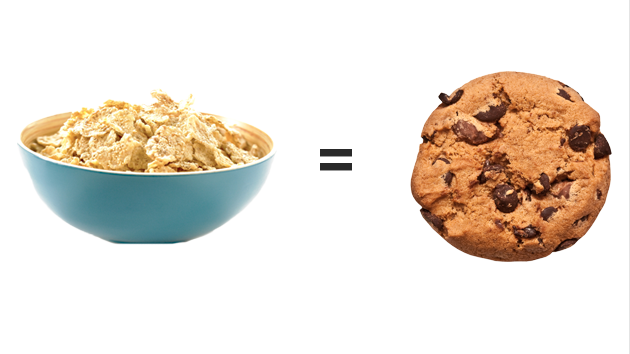
General Mills, maker of Cheerios, was stung by criticism for dragging its feet over climate action. That's changing.Glen Stubbe /Star Tribune/ZUMA Press
A few months ago, the international food manufacturing giant General Mills was branded a “clear laggard” by climate activists for not doing enough to cut its carbon footprint. Oxfam International accused the company of dragging its feet on reducing so-called “scope 3” greenhouse gas emissions—those not directly controlled by the company, but essential in making its products; for example, emissions from a farm contracted by General Mills to grow the oats that eventually wind up in your cereal bowl. Oxfam also faulted the company for not using its clout to engage directly with governments to “positively influence climate change policy.”
General Mills’ worldwide sales total $17.9 billion, and it owns familiar consumer brands like Cheerios, Old El Paso, and Pillsbury.
Today, Oxfam is claiming big victory: General Mills has released a new set of climate policies that Oxfam says makes it “the first major food and beverage company to promise to implement long-term science-based targets to cut emissions.”
The policy states unequivocally that General Mills believes that climate change is a big threat to global food security and its future business model:
As a global food company, General Mills recognizes the risks that climate change presents to humanity, our environment and our livelihoods. Changes in climate not only affect global food security but also impact General Mills’ raw material supply which, in turn, affects our ability to deliver quality, finished product to our consumers and ultimately, value to our shareholders.
Here are the key points of General Mills’ announcement:
- By August 2015, the company has promised to account for emissions across its entire operation and to set clear reduction targets.
- The company promises to reduce emissions with the goal of keeping the global temperature rise to less than 2 degrees Celsius above pre-industrial levels.
- The company also aims to achieve “zero net deforestation” in “high-risk supply chains” by 2020. (This doesn’t necessarily mean “zero deforestation,” but rather that destroyed forests are replaced). General Mills says these high-risk supply chains include land that provides palm oil, packaging fiber, beef, soy, and sugarcane.
- The company will also now disclose its top three suppliers of palm oil and sugarcane.
In another big step, the company also announced today that it will join BICEP—Business for Innovative Climate and Energy Policy)—”to advocate more closely with policy makers to pass meaningful energy and climate legislation,” according to the company. The group of 31 companies (including big guns like eBay and Starbucks) is run by the non-profit Ceres, and is designed to help businesses directly lobby policymakers on issues like renewable energy, green transportation, and pollution controls on power plants. Ceres also campaigns to get companies and investors to adopt more sustainable environmental practices.
Oxfam spokesman Grossman-Cohen believes that his group’s campaign helped motivate General Mills to make the changes. “It is in General Mills’ business interest to address climate change,” he wrote to me in an email. “But there’s no doubt that the public outcry helps ensure that the company’s efforts are as robust as they can be.”














